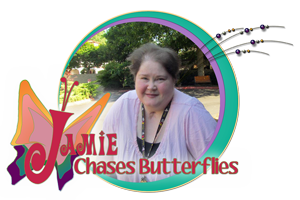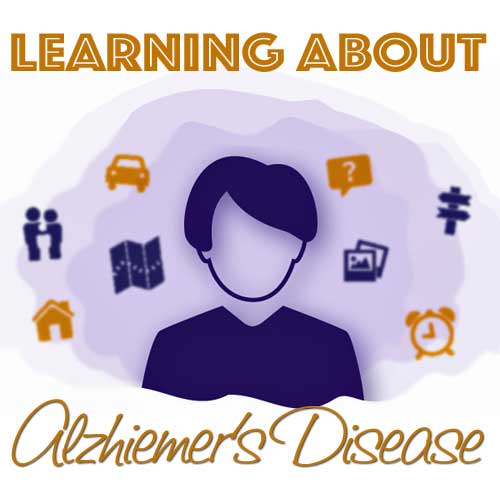Confusion, loss of memory, paranoia, and mood swings are often associated with older people. Alzheimer’s Disease affects 5.5 million Americans, aged 65-years-old or older. It is the third largest cause of death among Americans. Alzheimers is an irreversible progressive brain disorder.
In 1906 a German doctor named Alois Alzheimer discovered the disease when he noticed one of his patients who was generally mentally healthy started becoming mentally unhealthy. So he investigated and discovered the disease Alzheimers.
Alzheimer’s is the main type of dementia that is not the normal part of aging. When someone is diagnosed with Alzheimer’s, they generally live four to 8 years after the diagnosis. There is no cure for Alzheimer’s and no real treatment for it either.
The brain has 100 billion nerve cells (Neurons). Each nerve cell is connected to the other to form a communication network. Each network has a specific job.
Neuron Networks are Responsible for:
- Remembering
- Learning
- Thinking
- Smelling
- Hearing
- Seeing
Through autopsy studies they have discovered that Plaques and Tangles are two structures that have become a prime suspect in damaging and killing the nerve cells. They discovered this by discovering that those who have Alzheimers have more plaques and tangles than those who don’t.
-
Plagues are deposits of protein fragments called beta-amyloid that build up in between the nerve cells.
-
Tangles are twisted fibers of another protein called Tau that builds up inside nerve cells.
It is the destruction of and death of nerve cells that causes the symptoms of Alzheimer’s and the disease.
Symptoms of Alzheimer’s are:
- Difficulty learning
- Disorientation
- Mood changes
- Behavior changes
- Deep confusion
- Paranoia
- Trouble speaking
- Difficulty swallowing
- Difficulty walking
- Problems carrying out daily tasks
There are Three Main Stages of Alzheimer’s:
Stage One: Mild Alzheimer’s Disease
The symptoms of the first stage of Alzheimer’s Disease are great memory loss, cognitive difficulties, wandering, getting lost, trouble handling money, repeating questions, take longer doing daily tasks, and personality and behavior changes. This is the stage that people are diagnosed with the disease.
Stage Two: Moderate Alzheimer’s Disease
In the second stage of Alzheimer’s more damage occurs in the area of the brain that controls language, reasoning, sensory processing, and conscious thought. Memory and confusion gets worse. Hallucination, delusions, and paranoia starts happening.
Stage Three: Severe Alzheimer’s Disease
In stage 3 of Alzheimer’s Plaques and Tangles spread throughout the brain. Brain tissue starts to shrink. They cannot communicate. It is the near end of their life.
Alzheimer’s is a devastating disease. If you were diagnosis or are a caregiver for someone who has been diagnosed with Alzheimer’s. There are some things that may help. Lifestyle changes may help people to live well with this disease.
Lifestyle Changes that Encourage Longevity:
- Have a nutritious diet
- Physical activity
- Being socially engaged
- Focus on the tasks
- Limit confusion
- Avoid confrontation
- Get plenty of rest
- Stay calm
Practices that May Prevent Alzheimer’s:
- Stop smoking
- Exercise regularly
- Try cognitive therapy
- Eat a plant based diet
- Consume more antioxidants
- Be more social
Just recently someone that I knew and cared a lot about passed away from Alzheimer’s. It was challenging for his family and for him, but he lived well despite it. Caregivers and the patients they care for need to remember to take care of themselves by eating well and moving their bodies.
If you are needing help creating a wellness plan or meal plan, Karen G Clemenson and the Wellness Works NW Team would be happy to help you thrive. If you have any questions please feel free to Contact Us.
Here are some links I would like to share with you:
- Alzheimer’s Disease by MedlinePlus Staff
- Alzheimer’s Disease Fact Sheet by National Institute of Aging Staff
- Dementia and Alzheimer’s Disease Health Center by WebMD Staff
- Everything You Need to Know About Alzheimer’s Disease by Jaime Herndon, MS, MPH, MFA and medically reviewed by Timothy J Legg, PhD, CRNP
-
Living Well Book A guide to living well with mild cognitive impairment (MCI) & Early dementia by Alzheimer’s Research Center Staff
- Image Credit: What is Alzheimer’s Disease? by Alzheimer’s Association Staff
Related Articles:
 Jamie Holloway is a co-owner of Wellness Works NW and she is also our Research Manager and writes our Chasing Wellness with Jamie Holloway and Dear Jamie columns. Jamie is also an Independent Wellness Advocate at dōTERRA. She lives in the Portland, Oregon area. Since October 2011 she has been sharing her Journey Toward Health and Wellness with Vasculitis through her blog at JamieChasesButterflies.com. We hope you are as inspired as we are with the raw candor Jamie uses in her writing. If you would like to help support Jamie’s writing efforts please Donate now.
Jamie Holloway is a co-owner of Wellness Works NW and she is also our Research Manager and writes our Chasing Wellness with Jamie Holloway and Dear Jamie columns. Jamie is also an Independent Wellness Advocate at dōTERRA. She lives in the Portland, Oregon area. Since October 2011 she has been sharing her Journey Toward Health and Wellness with Vasculitis through her blog at JamieChasesButterflies.com. We hope you are as inspired as we are with the raw candor Jamie uses in her writing. If you would like to help support Jamie’s writing efforts please Donate now.













